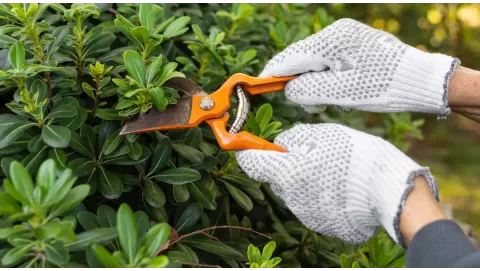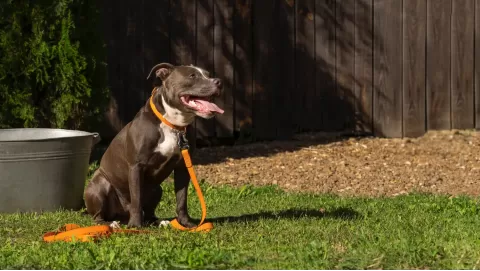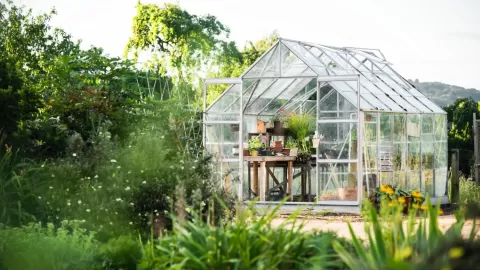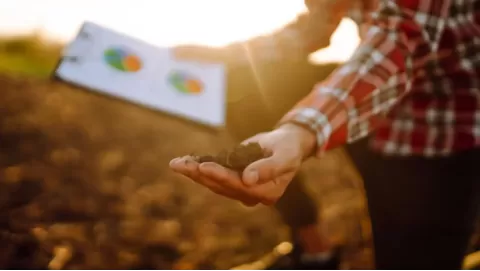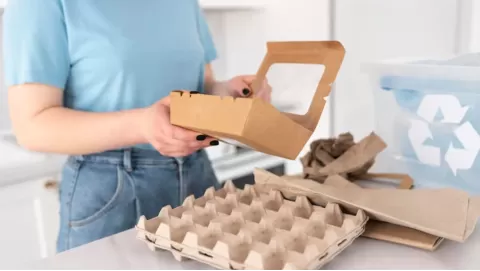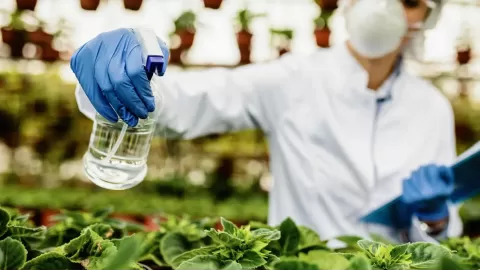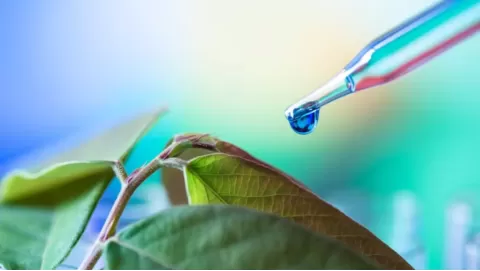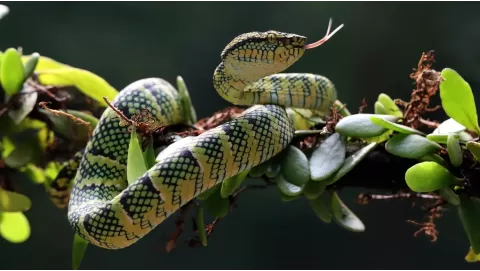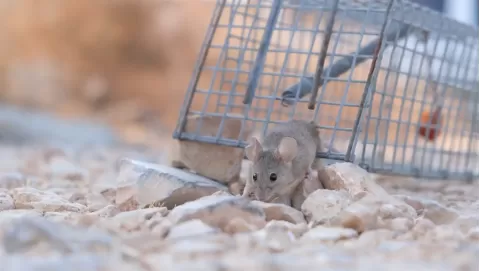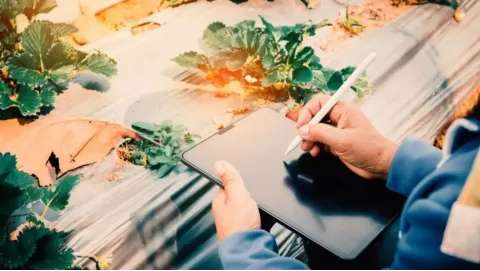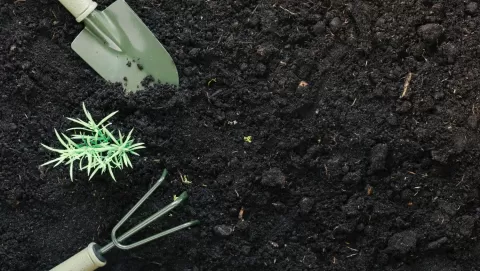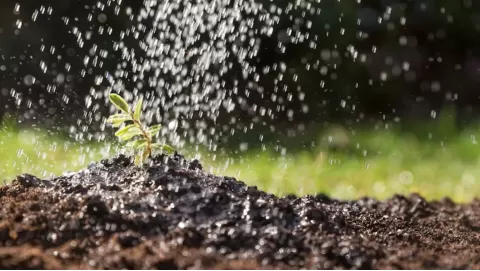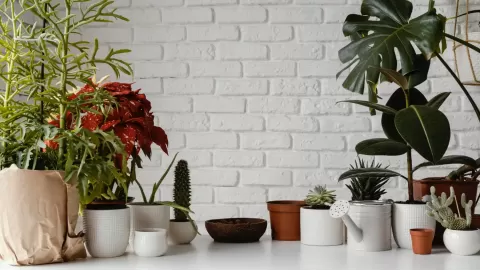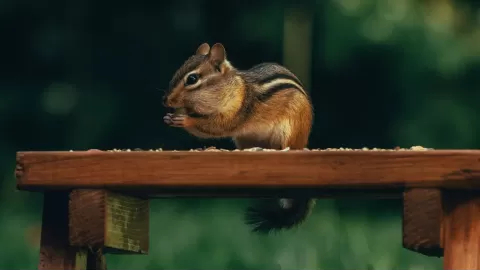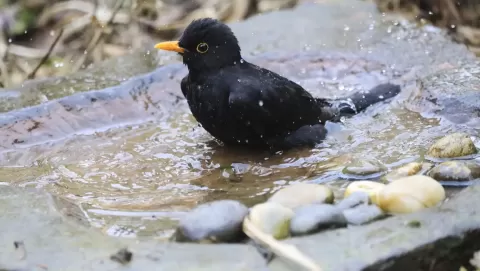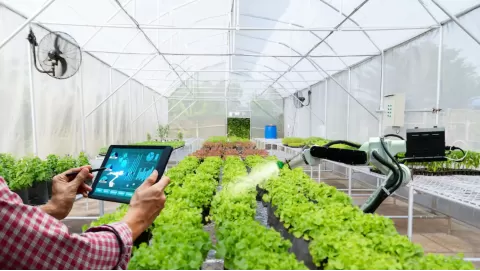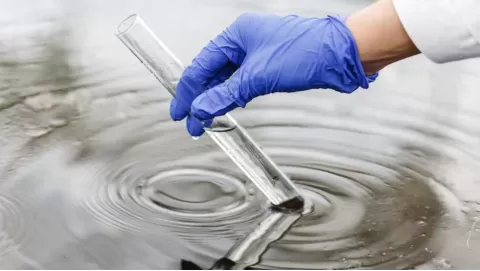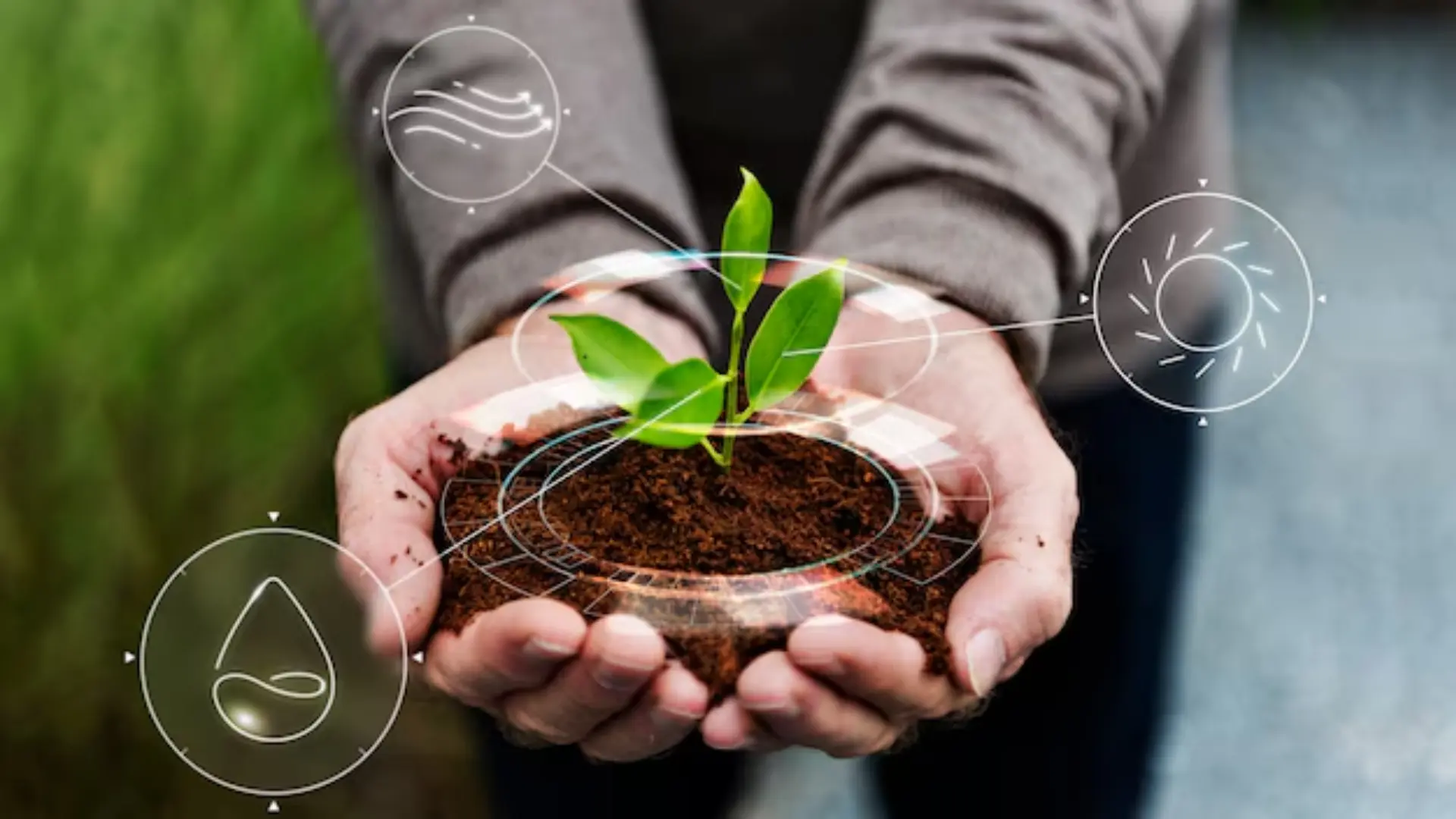
Advancing Sustainable Agriculture with Innovative Biological and Nano Technologies
The world’s food supply is under enormous pressure, and the need for sustainable, inventive, and transformative new solutions, coupled with issues around climate change, soil degradation, and growing pest resistance, is great. But traditional farming practices won’t be able to catch up with a changing environment and higher demand, which is why it’s sensible to search for smarter and more resilient ways to farm.
- What: New agricultural revolutions that draw on biology and nanotechnology—using nature-based resources like beneficial microorganisms and nanocarriers to deliver nutrients, increase performance, and reduce environmental damage.
- Ideal For: Farmers committed to reducing chemical use and boosting crop resilience while embracing sustainable farming methods that enhance productivity and resource efficiency.
- Key Players:
- Bioline AgroSciences: Leaders in biological control, showcasing microbial products for integrated pest management.
- Nano-Yield: Innovators in nanoliquid technology, delivering nutrients and protection precisely where plants need them.
- Blacksmith BioScience: Specialists in restoring soil health using science-backed microbial solutions to enhance microbial diversity and crop vitality.
- Pro Tip: Combine nanotechnology and biological inputs for a future-proof, high-yielding, and sustainable farming system.
Welcome to the age of big agricultural inputs, where biology meets nanotechnology. By incorporating naturally occurring biologicals into ultra-modern precision-designed nano solutions, agriculture now finds itself on the cusp of being able to grow more efficient, sustainable, healthier crops.

This article explores how three of the leading innovators, Bioline AgroSciences, Nano-Yield, and Blacksmith BioScience, are changing the agricultural sector. These companies are combining science and sustainability in ways that are just as impressive, whether that is natural-based pest control or nano-carriers that precisely target nutrient delivery. Together, they are not only increasing yields but also saving the planet for generations to come.
The Shift Toward Sustainable Agriculture
Sustainable agriculture is not just a fashion—it’s key to a healthy planet. Today, farmers are caught between the priority of high yields and taking care of the health of the planet.
Add eco-consciousness to the equation, and growers can help play a part in mitigating the enormous carbon footprint of cultivation itself, as well as improving soil health, saving on water, and cutting down on waste. Such a holistic approach pays back in abundance, not just in the long-term health of the land, but for generations of farmers and consumers who benefit.
Today’s consumers have been demanding organic and clean-label products, and now it’s giving them transparency and sustainability for their food, too. Governments are catching up, imposing regulations and offering incentives to encourage greener farming methods.
This impulse is driving synthetic chemistry increasingly towards doing less of the synthetic work. Farmers are in search of smarter, safer inputs that nourish crops and avoid harming ecosystems.
Biological Pest Control: Protecting Crops, Preserving Ecosystems
Biological control is the practice of using nature’s own buggies, bacteria, and fungi to keep other organisms at bay in the garden. It’s a tried-and-true strategy for protecting crops with zero environmental blowback of synthetic pesticides.
Unlike chemicals, the biological agents target specific pests, with benign insects and pollinators left untouched. It’s this precision that helps keep the farm ecosystem in balance.
Further to their environmentally-friendly nature, there can also be the further benefit of alternative controls restricting pest resistance, which can increasingly be a problem in chemically reliant systems. They offer long-term protection and are resistant to long-term wear.
Even better, biological pest control is a natural complement to Integrated Crop Management (ICM) programs. It is one in a suite of sustainable measures, helping growers hone their approach for greatest efficiency and minimal impact.
Bioline AgroSciences: Advancing the Future of Biological Control
Bioline AgroSciences has led the way in sustainable crop protection for more than 40 years. The company is a market leader in bio-solutions around the world in Europe, North America, Africa etc.
Anderline with Bran-Vermiculite is just one of these, which brings Amblyseius andersoni to you in a convenient medium. This good pest mite is a powerhouse in controlling several pests, including spider mites, russet mites, and broad mites.
Bioline’s success is based on its loyalty to growers. They provide support with expertise and personalized pest management programs to keep farms productive and protected all season long.
Also, natural enemies such as Amblyseius andersoni provide long-lasting suppression of pests without the use of chemicals. These beneficial mites adapt well to varying temperatures and crops, making them ideal allies in integrated pest management strategies.
Biological Control in Action: Real-World Applications
Biological pest control isn’t just for research labs—it’s thriving in working agricultural systems.
In today's farming industry, incorporating sustainable agriculture practices is increasingly important as our climate is changing and our resources are becoming scarcer. Through the use of such sustainable farming practices as cover cropping, crop rotation, and conservation tillage, for example, farmers can improve soil structure, increase soil moisture retention, increase soil quality, and decrease soil erosion.
These sustainable agricultural practices not only enable healthy ecosystems but also promote environmental stewardship by reducing greenhouse gas emissions. Combined with high-tech methods of farming and smart supply chain management tools, they are integral to any modern sustainable agriculture program.
Use in Greenhouses, Tunnels, and Field Crops
In greenhouses and high tunnels, biological control thrives thanks to the controlled environment. Predatory mites, parasitoids, and microbial options are all superior on multiple levels.
In field crops, outdoors, with growers looking to minimize chemical loads and to bolster the resiliency of their ecosystems, you are seeing more and more biologicals being applied. These tools safeguard yield while conserving natural enemies of pests.
Whether in hydroponic tunnels or open fields, biological controls are demonstrating their worth, delivering reliable efficacy and safer practices that have never been more in demand in today’s world of sustainability.
Nanotechnology: Revolutionizing Agricultural Efficiency
Nanotechnology is changing the way farmers can protect and treat their crops. Growers can hitch their products to nanoscience to create their fertilizers, nutrients, or crop-protection products, and whatever they’re using, they can apply with surgical precision.
At its core, this technology depends on nanoparticles — minuscule (though not extremely small) materials measured in billionths of a meter — to carry active ingredients directly into plant cells. These particles, therefore, can be introduced to plant tissues more quickly and easily than their conventional counterparts.
The advantages are game-changing. Nanotech speeds absorption, cuts waste, and boosts ROI. Requiring fewer inputs, farmers reduce waste and also grow more nutritious, higher-yielding crops.
The nano-enabled technologies are appealing partners for modern agriculture, led by the twins of sustainability and productivity.
Nano-Yield: Precision Farming Through Nanoliquid Technology
Nano-Yield is leading the nanotech farming revolution into the future. Their breakthrough Nanoliquid platform is designed to provide atomic-level triggers to crop performance.
Their top-of-the-line products, including NanoPro, NanoCalSi, and NanoPack, utilize patent-protected nanoparticle carriers to radically improve the performance of nutrients and crop protection products. These formulations were designed to be compatible in routine tank mixes, so they are easy to add.
The result? Faster nutrient availability, enhanced crop vigor, and improved crop performance – south to north, farms and greenhouses. With nano-yield’s row crops, specialty produce, and turf management product lines, you now have access to high-tech, precision tools to elevate your everyday farming.
This is the future of agtech: efficient, scalable, and capable of making a meaningful impact in the world.
Combining Biological and Nano Technologies for Maximum Impact
It’s about synergy now, not either-or, in modern agriculture and the dimension of agriculture’s reaction on all frontiers. When combined, biotechnology and nanotechnology provide a potent duo for increased productivity in an environmentally friendly way.
The two advances address disparate, though complementary, agricultural problems. Biological solutions pave the way with natural resilience, and nanotech for fast and accurate input delivery. Together, they represent a smart, holistic approach that farmers should use.
How Biological and Nano Inputs Work Together
Biological inputs — such as beneficial microbes or natural predators — perform best in an environment that’s conducive to their activity. Nano-formulations can contribute to such optimal conditions by increasing nutrient supply and uptake.
For instance, nanoliquids overall can improve root absorption, allowing nutrients to become more readily available to soil microbes. And those microbes, in turn, amplify plant immunity and nutrient cycling in a loop of efficiency.
Used in concert, these tools help crops grow stronger and faster using less chemical input. It’s good for the soil fertility, the harvest, and the grower.
Strategies for Integrated and Optimized Crop Management
Farmers are currently integrating the use of bio and nano products into ICM packages. Timing, compatibility, and mode of application are the key!
Start with a biological foundation—apply microbial products early on in the season to promote root-zone health. That can be followed up with nanotechnology to provide nutrients or protection where and when it's needed most.
The multi-dimensional strategy provides the greatest impact while placing the least amount of pressure on the environment and allowing for a sustainable cycle of growth from the soil up.
Blacksmith BioScience: Enhancing Soil Biology for Sustainable Growth
At the core of Blacksmith BioScience’s values is that healthy soil is the key to a sustainable and long-term successful farm. Their mission? Utilize scientifically proven microorganisms to rebuild and protect soil biology.
The company concentrates on products that promote microbial diversity — a critical yet often depleted asset in modern agriculture. These microbes make nutrients available, repress pathogens, and help plants cope with stress.
They happen with their products to mix and amplify nutrient cycling, to boost tolerance to drought and, as a bonus, to improve crop taste and quality. Blacksmith’s designs do not just feed plants — they revitalize the ground below.
By improving the soil from the bottom up, Blacksmith BioScience helps farmers do more with less—naturally.
Strengthening Crop Resilience Against Stress and Climate Change
Farming is more unpredictable than ever. Changing weather patterns, protracted droughts, new pests — these pressures are not only pushing crops to their limits. But that’s where biological and nano ones come in.
Living inputs like beneficial fungi and bacteria help support the health of plants, from the roots up, so they can withstand stressors better. They assist plants in regulating water use, enhancing nutrient uptake, and triggering natural defense systems.
On the nano side of things, agricultural technologies such as nanoliquid formulations supply essential nutrients and bioactives when crops need them most, especially in extreme heat, cold snaps, or dry spells.
The result? Crops that don’t merely survive stress, but thrive in it. These tools aren’t only defending a single season’s harvest. They are helping establish more resilient farms capable of enduring what’s next.
Sustainable Input Solutions for Organic and Conventional Growers
Whether you are certified organic or operate in a conventional setting, sustainability is important. Happily, biological and nano inputs are finally making it less challenging to produce clean and high-quality (not to mention better-yielding) crops for any farming model.

Bioline AgroSciences has natural solutions for pest control, and they're OMRI-listed, so they can be used in organic production. Growers can replace synthetic pesticides with natural predators, such as Amblyseius andersoni, to protect their crops.
On the nutrient side, Nano-Yield’s nanoliquid inputs are the way of the future, bringing you effective inputs with zero waste and added efficiency. Their formulations actually reduce overall chemical use, while improving results: ideal for growers looking for greater ROI and sustainability.
Solutions That Fit Both Small Farms and Large-Scale Operations
These technologies aren’t just for mega farms or high-tech greenhouses. They're scalable.
Smallholders can leverage the precision and affordability of nano inputs—and do more with less. On the other hand, commercial-scale growers can naturally add biocontrols to their existing IPM (Integrated Pest Management) and fertility programs.
With convenient packaging, simple application, and performance, you can see that Bioline and Nano-Yield are helping farmers of all sizes do their part to move toward a more sustainable future of agriculture.
Digital Tools and Support Services for Growers
Farmers today have more data at their fingertips than ever before and are using digital tools to make better decisions at every step of the farming process.
With apps dedicated to pest scouting and the use of smart release systems, there are plenty of tech tools available today that simplify crop monitoring and improve the performance of biological inputs. Those tools track pest populations and assess pressure, and guide the targeted application of natural solutions.
And on the nutrition side, precision mapping and targeted application systems ensure the nano inputs hit the right spot, ensuring maximum crop response and minimizing waste.
Support is also becoming more customized. Personalised recommendations, and use calendars and real-time insights, can be transmitted directly to growers to drive better outcomes by reducing trial and error.
All of these digital advances are turning complex systems into simple systems, simple systems that are now high-quality.
The Future of Farming: Innovations to Watch
The future of agriculture rests at the intersection of biology, nanotechnology, and artificial intelligence.
Technological breakthroughs are also improving, and people are creating pest and disease remedies that are particularly designed to function within the ecosystem. These new modern tools are so efficient that they are pest-specific and only kill the specific pests, which means the beneficial ones can thrive.

Due to the powerful delivery systems, nanotechnology can enable small and continuous inputs of substances. Because they are taken up more efficiently at lower application volumes, nano solutions are changing the game for both conventional and organic farming.
And now, AI is in the game. Predictive analytics, automation, and machine learning are enabling growers to be more proactive in planning ahead, reducing risk, and quickly responding to shifting conditions.
What awaits is a future stronger, more nimble and more sustainable — where innovation meets environmental stewardship — on the farms.
FAQs
1. How are bio and nano technologies related in agriculture?
In an increasing agricultural context, the biological (and, more recently, the nano) technologies are both promising and complementary, with emphasis on different actions. Biological solutions, such as friendly microbes and natural predators, help build the resilience of the crop over time, and nanotechnologies deliver nutrients and protection to the plant with extreme precision, leading to higher yields and healthier plants. Together, the result is a low-drift, high-efficiency system that reduces chemical use in the field and increases crop yield.
2. Are such technologies applicable to small and big farms?
Yes, the biological and the nano-based are scalable. Small farms use nano inputs successfully, ones that are so targeted and affordable that large operations can use them to complement integrated pest management and fertility regimes. This flexibility can make the technologies accessible for ameliorating various farm sizes and types.
3. What are the implications of employing bio and nano technologies in agriculture on the environment?
Such technologies allow a reduction in synthetic chemical applications and, hence, less environmental pollution and better soil health. The organic solution yields top results by saving the ecosystems and keeping the beneficial insects and microorganisms. As my nano solutions reduce waste and runoff, they put the nutrients back into the plants. Overall, these techniques are better for the environment and the plant's health.
Conclusion
The future of farming is all about sustainability and innovation. Growers can address today’s agricultural challenges with biological and nanotechnologies while increasing yields and safeguarding the planet. All of these innovations create a more innovative, more sustainable way of farming that not only meets the challenge of food production but also develops an ethic of land stewardship for the long run. As these technologies continue to evolve, they will shape the next generation of farming—one that is resilient, sustainable, and more efficient than ever before.
Partners like Bioline AgroSciences, Nano-Yield, and Blacksmith BioScience are leading the charge. Through these partners, it’s the solutions that help farmers sustain this global green practice! Together, they are helping to pioneer a future when innovation and nature coexist for the benefit of crops and the planet.
Disclaimer: This material is for informational purposes only and should not be relied on for legal, medical, financial, or other professional advice.
Sources:
Clemson University - Biological Control Strategies in Integrated Pest Management (IPM) Programs
Science Direct - Interactions of nanomaterials and biological systems: Implications to personalized nanomedicine



.jpg?1745528775209)


